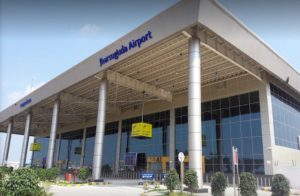Report reveals that almost half of low-income individuals in Australia do not have enough food, highlighting a concerning issue.
Many low-income Australians are facing difficulties feeding themselves, according to a new report by Foodbank.

A recent report from Australia's largest food charity has uncovered some concerning statistics about the state of food insecurity in the country. According to the Foodbank Hunger Report 2024, almost half of low-income households are struggling to provide enough food for themselves and their families. This means that nearly one in three Australian households are facing food insecurity, with two million of them experiencing severe levels of hunger.
The report, which surveys over 4000 Australians annually, also takes data from thousands of charities that Foodbank partners with to distribute meals and groceries. While there has been a slight decrease in overall food insecurity compared to last year, the situation has worsened for low-income earners. In fact, for those earning less than $30,000 a year, a staggering 48% are facing food insecurity, a 5% increase from two years ago. Even more concerning is that more than a third of these households are experiencing severe levels of food insecurity.
For these families, the fear of running out of food before they can afford to buy more is a harsh reality. In fact, almost all of the most severely affected group reported being worried about this, and for 79% of them, it has become a daily struggle. This means that many adults in these households are going without food for entire days, with parents often sacrificing their own meals to ensure their children are fed.
Brianna Casey, CEO of Foodbank Australia, expressed her concern over these findings, stating that we are quickly approaching a reality where more than half of the population will have first-hand experience with food insecurity. The situation is particularly dire for single parents, with 69% of them facing food insecurity. One single mother who was surveyed shared her struggles, mentioning that the rising cost of living has made it challenging to make ends meet, especially without any child support from her former partner.
Even high-income earners are not immune to the effects of the cost-of-living crisis. The report found that more than one in five households earning over $95,000 a year are experiencing food insecurity, with one in ten having to skip meals or go without food for entire days. This highlights the urgency of the situation, as even those who are financially stable are being forced to make sacrifices when it comes to food.
Casey also noted that high-income earners are often the most reluctant to seek help, despite their urgent need for food relief. This further emphasizes the severity of the situation and the need for action to address the cost-of-living crisis. With rental and mortgage increases putting a strain on more and more families, it is clear that compromises are being made when it comes to food and daily expenses. The report serves as a wake-up call for the government and society as a whole to address these issues and ensure that all Australians have access to adequate and affordable food.
1 Views










